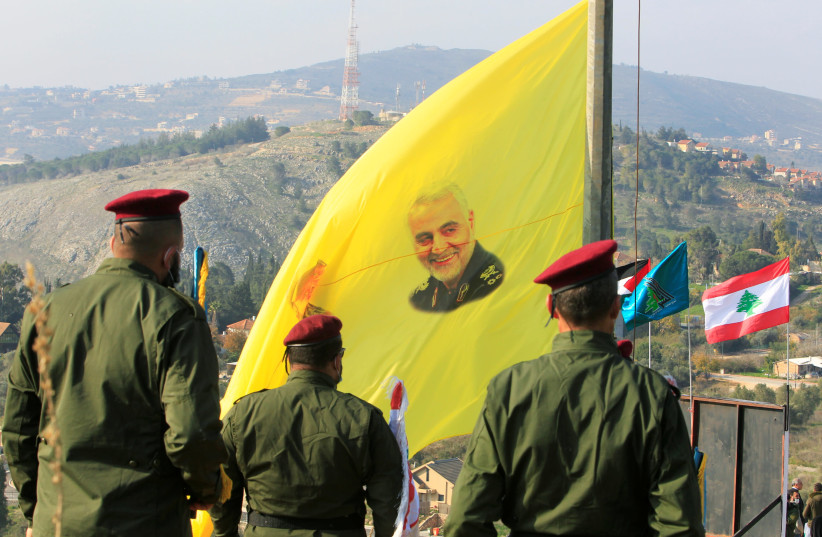The son-in-law of former Islamic Revolutionary Guard Corps Quds Force Commander Qasem Soleimani regularly smuggles weapons from Iran to Hezbollah in Lebanon, the IDF said on Friday.
Sayyed Reza Hashim Safieddine is the son of Sayyed Hashem Safieddine, the head of Hezbollah’s Executive Council – and is married to Zeinab Soleimani, the daughter of the prominent Iran commander who was killed in a drone strike in the Iraqi capital of Baghdad in 2020. He is believed to be a key member of Hezbollah’s financial activities in Lebanon since his father, who is Hassan Nasrallah’s cousin, oversees Hezbollah’s social and economic activities.
Reza is said to be close to Nasrallah’s second oldest son, Jawad. He was placed on the US counter-terrorism blacklist in 2018 for his activities in recruiting people to carry out terror attacks including suicide bombings in Israel and the West Bank.
According to the Israeli military, which has been regularly revealing the identities of senior Hezbollah operatives involved in weapons and drug smuggling in Lebanon, the elder Safieddine uses his senior status in the terror group to help his son smuggle strategic weapons.
Reza flies several times a month to Iran where Soleimani lives and uses his time in the Islamic Republic to coordinate the smuggling of advanced weaponry to the terror group, “using the infrastructure, resources and network of activists he heads” the IDF Spokesperson’s Unit said.

The network is supported by the IRGC and Hezbollah’s Executive Council headed by his father, who was added to the United States counter-terrorism blacklist in 2018.
The weapons are smuggled back into Lebanon using passenger flights, therefore “risking civilians” on flights from Iran to Damascus International Airport in Syria.
“The Hezbollah terrorist organization exploits the State of Lebanon and its citizens for terrorism that serve Iranian interests,” the IDF said, adding that it will continue to monitor the terror group’s “attempts to undermine the security of the State of Israel and will act as necessary for the security of the State of Israel and its citizens.”
Hezbollah has over 150,000 rockets and missiles having all sorts of ranges and payloads and has been working on its precision missile project since 2013. It is thought to have only several dozen precision missiles.
The terror group has been attempting to smuggle weapons from Iran by air, land and sea corridors for years.
In an attempt to thwart the smuggling, Israel has been carrying out its war-between-wars campaign against targets belonging to Hezbollah, the IRGC and its Quds Force, striking thousands of targets in Syria and even further from its borders.
Hours after the announcement made by the Israeli military, Syria accused Israel of carrying out strikes targeting southern parts of the Syrian capital of Damascus with missiles launched from the Golan Heights.
Three Syrian soldiers were killed in the strikes, which reportedly hit targets belonging to Syrian and Iranian militias in the suburb of Sayyidah Zaynab and near Damascus International Airport.
